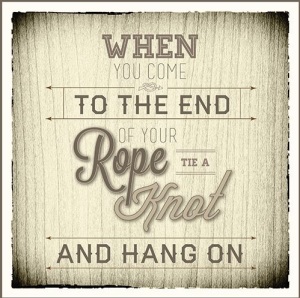The Thinking Moms’ Revolution is about information, self-determination, and options. As a group, we hit the road less traveled and use special diets, targeted nutrients, and other alternative therapies including herbs, homeopathy, and essential oils. And a few of us use prescriptions, or did. Mama Mac wrote a wonderful post about getting off her own anti-depressants a while ago. Read it here.
I’m a Thinking Mom and I medicate. Oh yeah, I said it, and they’re not tossing me out on my ear. I’m putting this out there, because if you’re backed into a corner and you’re about to break, DO WHAT YOU NEED TO DO. Catch your breath, regroup, and then get back in the game.
Before I go any further, I want dispense with a little saying I hear tossed around a lot: “If I can do it, anyone can do it.”
Not true. Please don’t let anyone, I don’t care who, dismiss your struggle. Every single one of us faces life’s challenges with a unique set of skills, support, resources, resilience, equanimity, and willingness to change. Every single kid presents an individual challenge. I had the luxury of starting this journey with only one child, economic resources, a little ADD hyper-focus, plus two years of college chemistry under my belt. If you need help, GET IT. If you need to try medication to get through a rough patch, I will support you and not judge you for it.
Okay, off that soap box . . . Here’s how medication as a treatment option has played out for me and my kids:
Depression and panic attacks
I have a recovered-from-autism kid with depression and anxiety, another kid with epilepsy, language-based learning disorder, a profound anxiety disorder, and dysregulated mood, and a third with attention issues.
I made a valiant effort to try everything that wasn’t medication. When I hit a wall and life became unmanageable, I threw myself on the mercy of our lovely physicians — both mainstream and holistic — and chose medication. And by valiant effort I mean VALIANT. I spent 10 years avoiding psychiatric meds by every means possible. This is what I’ve tried for one kid’s depression: diet, targeted nutrients, exercise, herbs, homeopathy, acupuncture, cranial sacral therapy, an ozone suit, improved sleep hygiene, amino acids, talk therapy, grounding, raw chocolate, energy healing, crystals, prayer, Monty Python, and volunteer work. (Trips to the beach and a double-pointed hematite crystal pendant had the biggest, most lasting effect, for what it’s worth. Call me woo-woo. I don’t care. I go with efficacy.)
At one point our beloved holistic MD just sat me down and said, “I almost never prescribe or recommend psychiatric meds, but, in this case, do it.” So we did, and it helped. It kind of raised the floor, if you will; so when my kid’s mood bottomed out, the bottom wasn’t quite so low. I know, sacrilege!
Once we stuck a pin in it and halted the downward slide, I was able to focus on other options and found a plan from www.theroadback.org, a site devoted to helping people get OFF psychiatric meds. What it did was help us maintain a lower dose of the SSRI. I do want to be crystal clear that we recovered our son without these medications. This was to address intractable depression and panic attacks after his recovery. Puberty threw a wrench in the works and upset his equilibrium.
Personally, I used www.theroadback.org to get off a benzodiazepine drug, which is notoriously tricky. Right after my son’s diagnosis in 2001, I started having such profound insomnia and panic attacks that my doctor at the time put me on a low dose of a benzo. I gotta say this, I never had panic attacks while I was on it. I didn’t do my research and ended being on it at a very low dose for YEARS, which was not the way to do it. I had a lot of my plate and trusted my lovely, kind doctor. But then he passed away unexpectedly, and, when I went to the doctor at the mainstream clinic, she suggested I check myself into a rehab facility to get off of it.
How in the . . . hello? Not gonna happen. By that time I had three kids with issues and a husband working 80-90 hour weeks at a Silicon Valley start-up. So, using www.theroadback.org as a scaffold, I parceled out my last bottle of pills and titrated off over a year with adequate nutritional support, a naturopath, a great therapist, and a lot of awareness of what was going on and what could happen. Sadly, the legacy of the benzo is that it’s left me more prone to panic attacks than I was before and has affected my memory. Now that I know what’s going to set it off (airplanes, crowds), I have a backup prescription for emergencies when I need to minimize the risk of a panic attack. I also have a meditation track loaded on my iPhone, carry earplugs and homeopathic gelsemium, and keep a small bottle of essential oils that I find calming (usually lavender or Stress Away) in my bag at all times.
 As for my own depression, I finally caved a few months ago and have started on a low dose of the same SSRI my kid was on at the suggestion of my therapist. And—damn it!—it helps. The upside is I feel clearer about what I need to do next, the pain associated with my depression has receded, and I’m realizing how much of my adult life was lost to the mists of mental unwellness, more dysthymic than one major depressive episode. I was using a three-legged chair to climb up to something out of reach. I just couldn’t do it.
As for my own depression, I finally caved a few months ago and have started on a low dose of the same SSRI my kid was on at the suggestion of my therapist. And—damn it!—it helps. The upside is I feel clearer about what I need to do next, the pain associated with my depression has receded, and I’m realizing how much of my adult life was lost to the mists of mental unwellness, more dysthymic than one major depressive episode. I was using a three-legged chair to climb up to something out of reach. I just couldn’t do it.
I’m using the med as a band-aid until I can get a handle on all the craziness that is my life and get the mental space I need to solve my own issues with depression. Mama Mac has suggested I contact her doctor as a resource for getting off the med when I’m ready, a referral I am counting on using. (I also discovered that there’s at least a four-generation issue with anxiety and depression starting with my grandfather. Clearly, we have more than just situational depression at work.)
My other new anti-depression treatment is our puppy, Daisy. My husband remarked that he didn’t remember seeing me that happy in a long time. New puppy = no post-partum depression + easy-to-train + immediate unconditional love. It’s all good.
Also, going mostly grain-free has made a big difference for both my oldest son and me.
Seizures
Full disclosure: Seizures terrify me. I know a boy who died from a seizure. Let me tell you, there’s nothing like going to an 11-year-old’s funeral to color your perspective on something.
So, yes, my kid with epilepsy is on an anti-epileptic drug (AED).
This one is tricky. There is a fairly vocal contingent that says AEDs are just bad. Period. They kill off neuronal mitochondria and have a list of side effects as long as my arm. They also don’t always work. They are fully effective in only about 60% of the people who take them. So far, my son is one of them, but I am ever mindful that it may not continue to work so well, and I continue to research our options.
Here’s my take: One thing you have to keep in mind about seizures is that they’re kind of like real estate. It’s all about location, location, location. In our experience, they’re also like little earthquakes and can cause long-term structural damage and lower the threshold for subsequent seizures. My son has seizures in the parts of his brain that control executive function, visual memory and auditory memory. Scars from seizures can knock out neurons permanently, leading to memory loss, so we rely on an AED to minimize break-through seizure activity and ongoing brain damage.
That said, we are not just sitting back and considering this challenge solved. We have run a trial of hemp-derived CBD oil, I slip MCT oil into his food whenever I can, and I am trying to get my mostly vegetarian kid to go low carb so we can approach more of a ketogenic diet. We are doing 19-channel LORETA neurofeedback to try to increase coherence (how the different parts of the brain communicate and coordinate) and stabilize electrical activity. We work with a holistic pediatrician and a naturopath who is gifted in cranial sacral therapy. We sought out an alternative to traditional orthodontia called and ALF device, because the standard recommendation would have created an unstable upper palate. We are also pursuing distance treatment for congenital Lyme with Michael Payne, a practitioner in Richmond, VA. Lyme has been implicated in some cases of brain injury in kids — including autism (yes, I just implied autism results from a brain injury. Because sometimes it DOES).
Saying No, Pushing Back, and Compromising
At some point in this wild adventure of parenting, we ended up in the office of a mainstream child psychiatrist. We were backed into a corner and not sure what to do next. Our holistic pediatrician referred us to a major research university, and we were assigned a Fellow in Child Psychiatry as our doctor. Poor guy. I pushed back — granted, I did so very politely — at every attempt to stack multiple meds. Before I went in, I read up on adverse reactions, so I knew what to raise questions about, and I had decided to say a flat out NO to Abilify and Risperdal, using the argument that if we pull those out now, we’ll have nowhere to go if the shizz really hits the fan later. There was also a very strong familial risk of catastrophic side effects of type 2 diabetes. So introducing meds that can increase that? Yeah, no.
I calmly refused to expose my son to a possible exacerbation of his symptoms and asked “What else do you have? I’m more than willing to work with you, but I need options.” I’d like to think I helped make him a better doctor, but he took off for New Zealand when his fellowship was up. Coincidence?
Finally, after a couple months of trial and error, getting reassigned to a new doctor and going through the same process with her, we struck on a lower-dose medication combo that works well for my son. This new doctor was just a better fit for us, and we followed her to a private practice — one that includes one-on-one talk and therapy, social skills training utilizing Minecraft, parent education, and Nerf guns. The first thing she said when we met at her new office was, “So what do you think about getting him off one of these meds?” Yesssss!
If you medicate your child, you haven’t failed as a biomed/alternative mom. Being a Thinker means you explore and seriously consider all of your options and treatment opportunities. Every kid is different; every family is different. Do what you need to do to buy some breathing space, get a decent night’s sleep, or find some time to think. If your child is hurting himself or hurting you, GET HELP. It’s hard to formulate a treatment strategy when you’re under fire.
 Conversely, jumping to meds as a first line of defense is no victory. It is in your child’s best interest that you try to unearth the cause of the problem. These issues aren’t the result of “the mystery of autism” or idiopathic co-morbidities, medical jargon for shizz happens. There are physical, nutritional, digestive, immune, inflammatory, viral, or bacterial triggers. Medications are band-aids. Psychiatric meds don’t fix the problem. They can be both life-saving, if used wisely, and detrimental if used rashly. Study up, ask questions, turn over every rock and stone looking for answers. Do the work. Be a Thinker.
Conversely, jumping to meds as a first line of defense is no victory. It is in your child’s best interest that you try to unearth the cause of the problem. These issues aren’t the result of “the mystery of autism” or idiopathic co-morbidities, medical jargon for shizz happens. There are physical, nutritional, digestive, immune, inflammatory, viral, or bacterial triggers. Medications are band-aids. Psychiatric meds don’t fix the problem. They can be both life-saving, if used wisely, and detrimental if used rashly. Study up, ask questions, turn over every rock and stone looking for answers. Do the work. Be a Thinker.
Here are some non-medication ideas and resources. I want you to have options and be able to make the best decisions you can make. The goal is happy, healthy kids in happy, healthy families. Period.
The Mood Cure, by Julia Ross
Depression-Free, Naturally, by Joan Mathews Larson
The Antianxiety Food Solution, by Trudy Scott
Nutrient Power: Heal Your Biochemistry and Heal Your Brain, by William J. Walsh
Exercise for Mood and Anxiety: Proven Strategies for Overcoming Depression and Enhancing Well-Being, by Michael Otto
Primal Body, Primal Mind, by Nora Gedgoudas
The Tapping Solution: A Revolutionary System for Stress-Free Living, by Nick Ortner
The EFT Manual, by Dawson Church
Good-Bye Anxiety, Good-Bye Fear—of flying, driving, doctors, dentists, social situations, confrontations, public speaking, relationships, and everything else **, Guided Meditation and Hypnosis CD with Roberta Shapiro
A Symphony in the Brain, by Jim Robbins
Healing Young Brains, by Robert W. Hill
Treating Epilepsy Naturally, by Patricia Murphy
~ Zorro


















